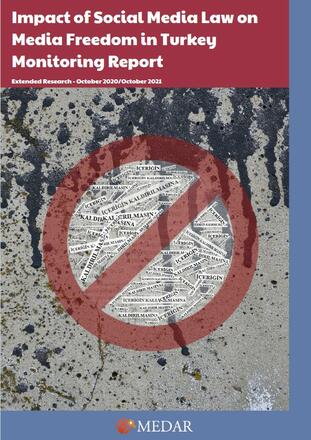
Similar to the interim report of this process, the “violation of personal rights”makes up more than 90% of all removal orders, although the term is vaguely defined in the Turkish Penal Code.
A four-pillar methodology was developed to classify the news articles by subject, by the position of the actors/complainants mentioned in the news article, by the justifications cited in removal requests and by the organizations receiving the request. Thus, it was opened to see the quantitative weight of the removal request between the scanned dates in various titles and compositions.
With this report, MEDAR aims to measure the impact of the law on the scope of content removal within the framework of press freedom and citizens’ right to access news and information.
The report ends with recommendations that can be applied to all regulators in any other country and extended to other stakeholders such as professional associations, trade unions, news
outlets, media organizations and civil society organizations, who should launch campaigns to raise awareness on basic rights and the sanctions brought by the legislation.
The content of this article can be used according to the terms of Creative Commons: Attribution-NonCommercial 4.0 International (CC BY-NC 4.0) . To do so use the the wording "this article was originally published on the Resource Centre on Media Freedom in Europe" including a direct active link to the original article page.

